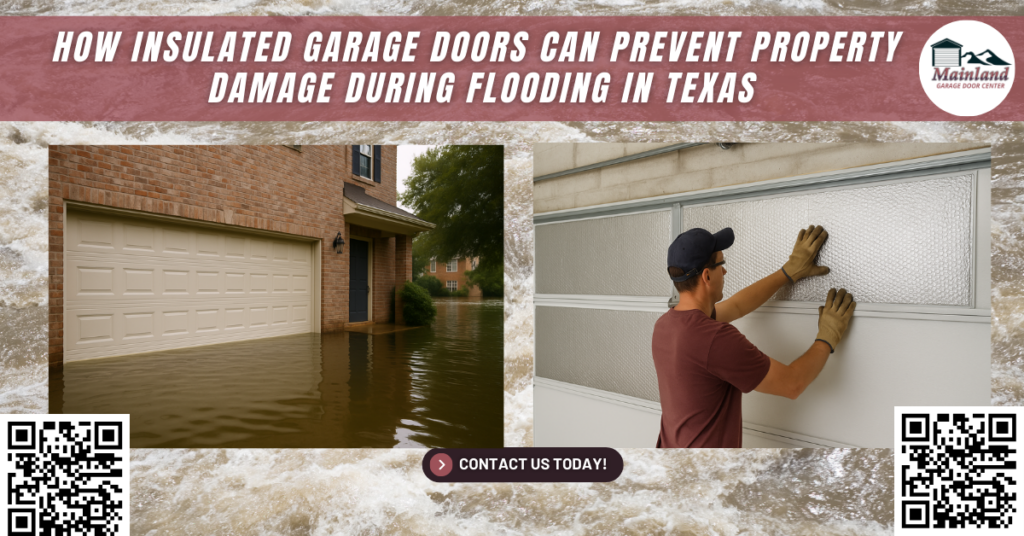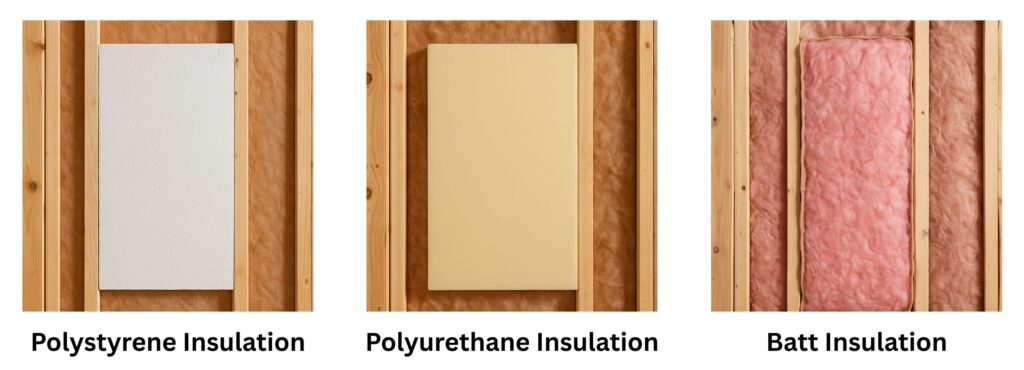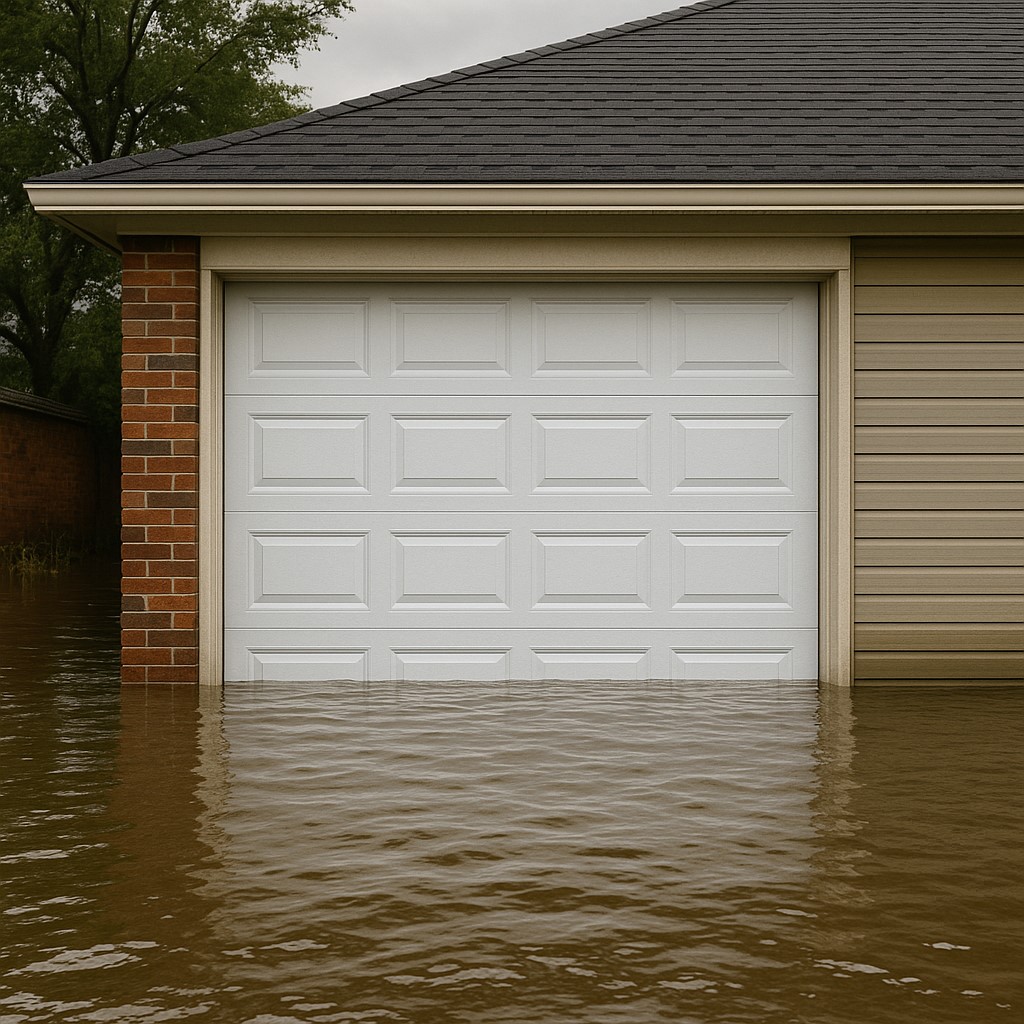How Insulated Garage Doors Can Prevent Property Damage During Flooding in Texas

When rising water swept through a Texas City neighborhood last year, a resident called us in a panic. Their non-insulated garage door had buckled under the pressure of fast-moving floodwaters, soaking expensive tools, damaging drywall, and ruining the logic board of their garage door opener. At Mainland Garage Door Center, we quickly replaced it with a steel-reinforced insulated garage door, sealing the space with high-density polyurethane insulation. The result? No water infiltration during the next storm.
This isn’t a rare occurrence. According to FEMA, 90% of natural disasters in the U.S. involve flooding, and Texas ranks highest in flood-related damage claims. What many homeowners don’t realize is that the garage is often the weakest link in the home’s exterior defense, especially non-insulated doors that lack protective foam, weather stripping, or proper R-value insulation.
In Texas City and nearby Starling Garage Doors neighborhoods, we know that the weather can change fast. If you’re using your garage space for storage, a workshop, or parking your car, it’s critical to install an insulated garage door that acts as a barrier against heat, cold, and yes, flood damage. This guide will show how the right garage door insulation can protect your home and increase energy efficiency year-round.
What Is an Insulated Garage Door?
An insulated garage door is a multi-layered door designed to reduce thermal transfer, enhance energy efficiency, and increase protection from outside elements like heat, cold, and flooding. These garage doors typically consist of:
- A steel or aluminum outer layer
- A core of insulating material like polystyrene or polyurethane foam
- An inner steel or fiberglass layer for durability
Types of Insulation Materials:
- Polystyrene (Styrofoam): A rigid foam board that offers basic insulation. Easy to install but with moderate R-values.
- Polyurethane: A spray-in-place urethane foam with higher R-values, better adhesion, and moisture resistance. Common in high-performance insulated doors.
Batt insulation: Often used in door insulation kits, made from fiberglass or cotton. Typically added to DIY projects.

The R-value (and its opposite, u-value) measures how well the door resists heat flow. A higher R-value means better heat insulation and greater protection from the elements. Insulated garage doors can have R-values ranging from R-6 to R-18 or higher, compared to R-0 for non-insulated doors.
How Flooding Damages a Garage
A garage isn’t just a parking space; it’s a critical structural and storage area. However, it’s also highly vulnerable to flooding, especially with non-insulated doors or outdated weather seals.
Common Flood Damage Includes:
- Water intrusion through cracks, joints, or under the garage door
- Soaked and warped door panels, especially in wooden or unsealed doors
- Mold or mildew growth due to trapped moisture in garage door insulation materials
- Damage to your garage door opener, logic board, and light socket
- Electrical hazards due to wet outlets and wires
- Damage to items stored in the garage space, such as tools, electronics, or vehicles
If your garage door lacks thick insulation, weather seals, or proper installation, floodwater can find a way in, damaging not just the garage, but the entire home.
Benefits of Insulated Garage Doors for Flood Protection
Choosing the right insulated garage door offers multiple benefits, especially during extreme weather events like floods.

1. Stronger Seals and Weather Protection
Insulated doors come equipped with:
- Heavy-duty bottom seals
- Vinyl weather stripping
- Thermal barriers that prevent water seepage
These features block both moisture and heat transfer, ensuring your garage remains dry and energy-efficient.
2. Durability Under Pressure
Floodwaters exert tremendous pressure. Insulated sectional doors made from steel or aluminum reinforced with polyurethane foam maintain their shape under stress, unlike cheap or non-insulated doors that may buckle, crack, or warp.
3. Resistance to Warping and Rot
Traditional wooden doors absorb water and can rot. In contrast, insulated garage doors made with aluminum, fiberglass, or steel and sealed with foam core insulation resist water absorption and structural breakdown.
4. Thermal and Energy Efficiency
After a flood, temperature control becomes essential to prevent humidity, mold, and high energy bills. With an insulated garage, you’ll benefit from:
- Reduced energy loss
- Lower heating and cooling costs
- Reduced wear on HVAC systems
Extra Flood-Protection Options and Insulation Enhancements
For maximum protection, consider combining your insulated garage door with additional garage door products:
- Garage door threshold kits: Create a raised waterproof edge at the bottom of the door
- Drainage channels: Divert water away from the garage entrance
- Elevated installation: Lifting the door slightly above ground level to avoid minor flooding
- Door insulation kits: Great for retrofitting existing doors with additional foam or batt insulation
- Insulated sectional doors: Offer tight seals at each panel joint for better moisture control
Brands like Clopay Garage Doors, Amarr Garage Doors, Martin Garage Doors, and Craftsman offer insulated doors in a wide range of styles and materials. Whether you’re going for a modern aluminum look or a classic steel carriage door, there’s an energy-efficient option for you.
Is It Worth the Investment?
Many homeowners focus only on initial cost, but forget to factor in long-term savings and damage prevention. The return on investment (ROI) of an insulated garage door is substantial:
- Prevents flood-related damage that could cost thousands
- Reduces energy bills by improving heat insulation
- Enhances home value with better curb appeal and modern materials
- Improves noise reduction, ideal if your garage is near living spaces
When comparing pros and cons, the benefits of insulated garage doors outweigh any extra initial cost. Plus, you’ll enjoy year-round perks beyond just flood protection.
Ideal for All Property Types
Insulated garage doors are a smart upgrade for both residential and commercial spaces. Whether you operate a small shop or park your vehicle in a car garage door attached to your home, insulated doors offer:
- A wide range of insulation types to suit any budget
- Options for single doors, double-wide doors, and custom sectional doors
- Compatibility with top-tier garage door openers, including Chamberlain and Craftsman
By reducing thermal transfer, blocking moisture, and extending door lifespan, these doors offer peace of mind and protection during Texas’s most unpredictable weather seasons.
How Can Mainland Garage Door Center Help You?
At Mainland Garage Door Center, we proudly serve Texas City and surrounding areas like Starling Garage Doors, offering expert installation, repair, and maintenance of insulated garage doors. Our licensed technicians are highly trained in flood prevention, energy efficiency upgrades, and custom garage door insulation kits.
We offer:
- Full installation of polyurethane or polystyrene insulated garage doors
- Retrofits using high-performance insulation materials and weather-seal products
- Garage door opener upgrades, including logic board replacements
- A wide selection of steel, aluminum, and fiberglass doors from trusted brands like Clopay, Amarr, and Martin
📍 Visit us at: 10000 Emmett F Lowry Expy Avenue 9, Texas City, TX 77591
📞 Call us now at: (832) 536-6690
Don’t wait for the next storm to test your garage’s limits. Let our team at Mainland Garage Door Center help you protect your home with a flood-resistant, insulated garage door that adds both value and security.
Need a step-by-step guide on which insulation type is best for your property? Give us a call or schedule an on-site assessment. We’ll help you pick the right insulated garage door to suit your needs and your budget.
Frequently Asked Questions (FAQs)
1. Can I add insulation to my existing garage door instead of replacing it?
Yes, you can use garage door insulation kits that include polystyrene or fiberglass batt insulation, but they won’t be as effective as a factory-insulated door.
2. How do I know what R-value I need for my garage door?
If your garage is attached to your home or used as a workspace, aim for an R-value of 12 or higher for better thermal efficiency and protection.
3. Will an insulated garage door reduce outside noise?
Yes, insulated doors offer excellent noise reduction by dampening sound vibrations, making them ideal for garages near living spaces or busy streets.
4. Are insulated garage doors compatible with smart garage door openers?
Absolutely, most insulated garage doors are fully compatible with smart openers from brands like Chamberlain, LiftMaster, and Craftsman.
